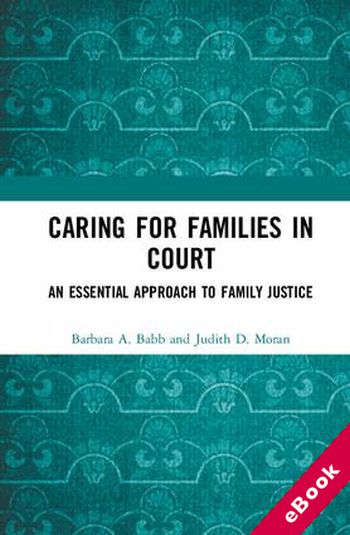
The device(s) you use to access the eBook content must be authorized with an Adobe ID before you download the product otherwise it will fail to register correctly.
For further information see https://www.wildy.com/ebook-formats
Once the order is confirmed an automated e-mail will be sent to you to allow you to download the eBook.
All eBooks are supplied firm sale and cannot be returned. If you believe there is a fault with your eBook then contact us on ebooks@wildy.com and we will help in resolving the issue. This does not affect your statutory rights.
In many US courts and internationally, family law cases constitute almost half of the trial caseload. These matters include child abuse and neglect and juvenile delinquency, as well as divorce, custody, paternity, and other traditional family law issues.
In this book, the authors argue that reforms to the family justice system are necessary to enable it to assist families and children effectively. The authors propose an approach that envisions the family court as a ‘care center’, by blending existing theories surrounding court reform in family law with an ethic of care and narrative practice.
Building on conceptual, procedural, and structural reforms of the past several decades, the authors define the concept of a unified family court created along interdisciplinary lines —a paradigm that is particularly well-suited to inform the work of family courts. These prior reforms have contributed to enhancing the family justice system, as courts now can shape comprehensive outcomes designed to improve the lives of families and children by taking into account both their legal and non-legal needs. In doing so, courts can utilize each family’s story as a foundation to fashion a resolution of their unique issues. In the book, the authors aim to strengthen a court’s problem-solving capabilities by discussing how incorporating an ethic of care and appreciating the family narrative can add to the court’s effectiveness in responding to families and children. Creating the court as a care center, the authors conclude, should lie at the heart of how a family justice system should operate.
The authors are well-known figures in the area, have been involved in family court reform on both a US national and an international scale for many years.